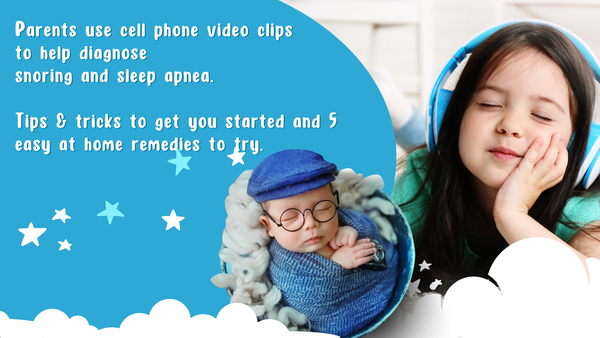Introduction
Obstructive Sleep Apnea (OSA) is a prevalent sleep disorder, especially concerning when it affects children. Early diagnosis is crucial to prevent potential complications and improve the quality of life. With the rise of technology, especially the ubiquity of smartphones, new methods of diagnosis are emerging.

The Rise of Smartphone Technology in Medical Diagnosis
In today's digital age, smartphones have become more than just communication devices. They are now:
- Tools for education
- Instruments for entertainment
- Devices for health and fitness tracking
- And recently, a potential tool for medical diagnosis.
Studies have shown the potential of smartphones in various medical fields. For instance, the National Institutes of Health has published research on the use of smartphone videos to predict the severity of OSA in children. This method is not only innovative but also convenient, offering a quick and non-invasive way to gather preliminary data.

The Role of Smartphone Video Clips in Diagnosing OSA
The concept of using video clips for diagnosis is groundbreaking. By simply recording a child's sleeping patterns, significant insights can be gained. Some benefits include:
- Cost-effectiveness: Reducing the need for expensive sleep studies.
- Convenience: Allowing for recordings to be taken in the comfort of one's home.
- Early detection: Providing preliminary data that can prompt further medical investigation.
Moreover, apart from technological solutions, there are easy home remedies that parents can consider. Simple dietary changes, like reducing caffeine intake before bedtime, can make a difference. Positional solutions, such as products from Rematee, can also help in alleviating some symptoms of OSA in children.
The Monash Obstructive Sleep Apnoea Video Score
One of the most promising tools in the realm of smartphone video diagnosis is the Monash Obstructive Sleep Apnoea Video Score. This scoring system is designed to quantify abnormalities in breathing observed in short video recordings. The scoring system evaluates:
- Inspiratory obstructive noises
- Presence of obstructive events
- Increased work of breathing
- Mouth breathing
- Neck extension
Each component is given a score, and the cumulative score provides an indication of the severity of OSA.
Easy Tips and Tricks to Try at Home
Before diving into medical interventions, there are several home remedies that parents can try to alleviate symptoms of OSA in their children. Not only are these methods cost-effective, but they also allow parents to observe and record the effects using their smartphones. Here's a table of easy tips and tricks:

Parents can record their child's sleep after implementing each tip to observe any improvements. Over time, these recordings can be invaluable in understanding which remedies are most effective.
Conclusion
The potential of smartphone video diagnostics in the realm of pediatric OSA is immense. As technology continues to advance, it's crucial for both medical professionals and parents to stay informed and utilize these tools for early detection and intervention. If you hear snoring and signs of obstructive sleep apnea from your child, don't hesitate. While it's essential to consult with your doctor, you can also get started with the simplest of the 5 tips provided to offer immediate relief. Combining technological solutions with easy home remedies can offer a comprehensive approach to managing and potentially alleviating OSA symptoms in children.

Laissez un commentaire